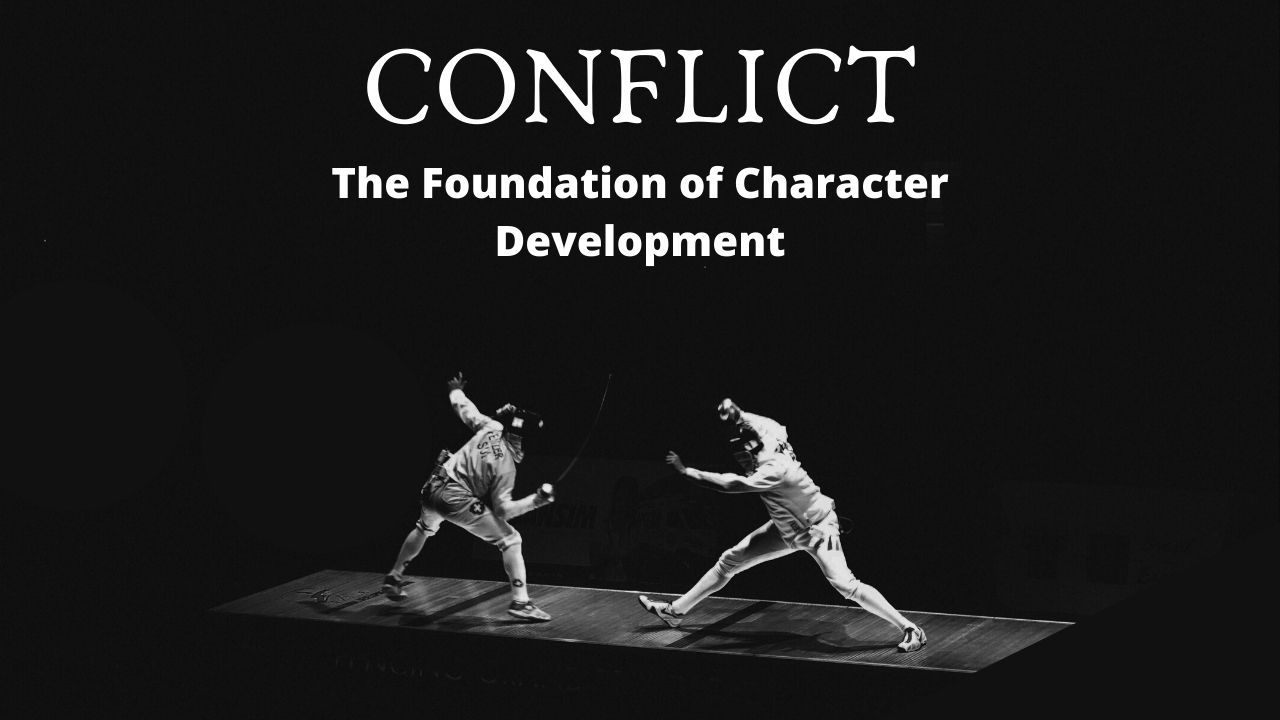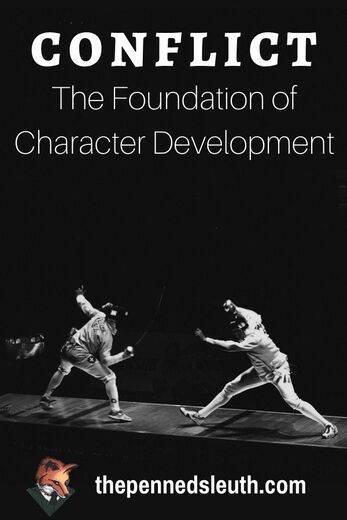Latest Writing Video! |
|
Character conflict, an essential aspect of any great story. It is thanks to character development that the characters we dislike in the beginning become the characters we enjoy in the end. It is character development that challenges many beginner writers, but not anymore! Here is how you can use conflict to create character development. The Basics of ConflictConflict is one of the many writing tools that we use to our advantage. It can be used to make a scene suspenseful and interesting. Yet, that is not what we will be talking about today. A conflict is an excellent tool for developing characters. When a character is faced with a challenge, such as a physical confrontation or an argument with a difficult character, they learn from the experience. Perhaps they learn how to throw a powerful punch after receiving one or how to argue a point strongly. With that in mind, we need only introduce such a conflict to the character. Creating conflict is easy, you need only look at the character you want to develop. Find a negative trait or a skill they lack and put them in a situation where they are challenged by it. Take this scenario for example: Your character is an excellent swimmer and has developed an ego regarding their skill. Challenge their swimming with a competition with a better swimmer, or better yet, remove their confidence to swim with a fear of the ocean. You can do this by introducing a champion swimmer for the former example or an ocean predator for the latter example. The result will be a despondent character, who realises they are not as great as they think they are; the beginnings of character development. It is as easy as that. Your genius detective could be challenged by a far more intelligent criminal, your strong knight could be challenged by a simple riddle and so on. Developing Your CharacterWith the introduction of conflict, your character is presented with a sometimes simple fact, they have a weak point. No character will ever be perfect, this much is true, but when they realise that they cannot rely on their strengths, it is the beginning of some excellent character development. You can develop your character in one of two ways. You can shine a spotlight on their development, making it the core of the novel Take this scenario for example: Your character struggles in a social situation. Be it making friends or simply ordering a coffee. Your character stammers or freezes up and they realise that needs to change or a solution found. Your character, throughout the novel, trains themselves to be more social by putting themselves in basic social situations. Through each encounter with people, they keep track of what they did right and what they did wrong. As they develop, your character goes from speaking through text to laughing and chatting with ease, just as they wanted. Finally, standing up in front of a crowd of people and thanking their friends for giving your character such confidence. That is one scenario, but the second of the two ways is to be more subtle with character development. It need not be a core part of the plot, but you can take this concept and use it subtly throughout the novel. Take this scenario for example: Your character helps others with a task. The task is the core plot point in your novel and your character remains mute throughout the novel. Finally, nearing the end of the task’s completion, each friend is challenged. Your character, who struggles to speak, finds the confidence to speak and overcomes the challenge, along with the other friends. The plot progresses from there. A simple way to show character development, but effective. It is because of such simplicity that character development is often overlooked. Yet, it is so easy to create conflict, making it easy to grow your character. The Benefits of ConflictConflict can be used for character development, but also plot progression. If we were to take a basic adventure novel, with protagonists and antagonists, you will find that the conflict between the two is what keeps the plot going until one eventually wins over the other. Conflict makes your novel interesting, investing and unique. The challenges your characters face develop them in different ways, making them different from any other character written before. It is, for this reason, you can have two writers write a novel with the same theme and setting but have two entirely different books in the end. One writer might focus on building characters and the second writer might concentrate on breaking their characters. Both are developing their characters and their story. Yet, even if they were to follow the same path, the lessons they teach their characters can be fundamentally different as well. Another benefit being the reader’s opinion of each character. I mentioned earlier that a hated villain can become a loveable protagonist, all thanks to character development. It is thanks to the lessons taught through conflict that even the most black-hearted can become the most caring, or the most foolish become the wisest. In most genres, it is important to convey this life to your reader. You’re writing a novel about an interesting world, be it fictional or not. A world filled with characters with their own stories, desires and goals. Characters who are the main character in their own mind. Have them learn along the way, be rewarded for their growth or punished for their stubbornness. It is these events and lessons that make up your story, no matter what you are writing about. ConclusionSuch stories are loved by readers around the world, stories filled with characters that grow from their mistakes. It is thanks to these journeys of development and sometimes self-discovery that characters become memorable and loved. We, as people, are growing and learning each day, so giving our characters such humanity makes them more relatable as well. All this can be summed up in a simple life lesson. If everything was handed to us on a silver platter, what would be the point of living? It is the struggle to improve and reap the rewards of our effort that make life so satisfying. A lesson that can be appreciated, even through the characters in your novel. On that note, Good day, goodnight and happy writing! Thank YouDear Writer, As a big thank you for reading this article I would like to offer you something for FREE! A writing course on how to improve your main character! Click here to check out your course. To receive more content, bonuses and some big discounts on future courses, join the writer’s group here. Thank you for reading! Kind regards Matthew Dewey, Writer Pin for later!
0 Comments
Leave a Reply. |







